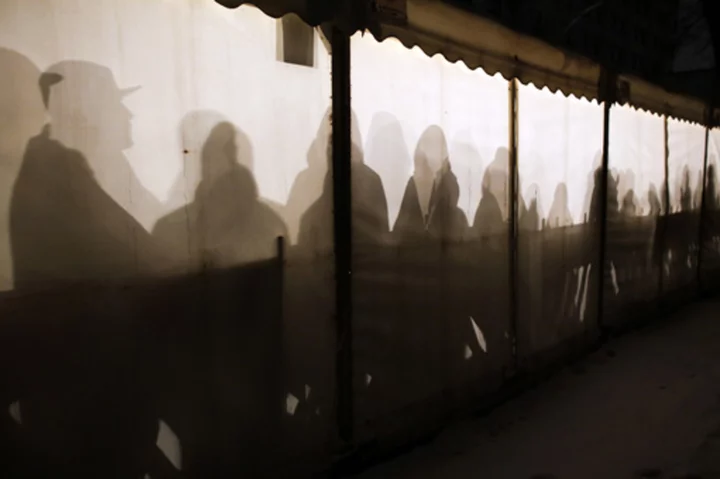BERLIN (AP) — German Chancellor Olaf Scholz promised a further 1 billion euros ($1.1 billion) Wednesday for communities struggling to provide housing, schools and other basic services to a growing number of migrants, but failed to reach a breakthrough in talks with state leaders on the underlying issue of federal funding.
The pledge was part of a package of measures agreed between Scholz and the governors of Germany's 16 states, who have been arguing for months over who has to pay for the rising costs.
“This billion is important, but of course it doesn’t solve the fundamental question,” said Stephan Weil, governor of Lower Saxony state.
Still, he said, the progress achieved so far made him confident that a broader agreement could be reached by November.
Scholz called the meeting “very constructive,” adding that the two sides had also agreed to digitize the process of handling asylum requests and accelerating deportations for people whose bids are rejected.
The federal government will seek to strike more deals with other countries allowing for greater numbers of regular migrants to come to Germany if they in turn agree to take back rejected asylum seekers, he said.
In addition to the more than 1 million Ukrainians who came to Germany last year seeking shelter from Russia's war on their country, the number of asylum-seekers is also up steeply. Ukrainians receive refugee status in Germany immediately and don’t need to apply for asylum.
In 2022, more than 244,000 people applied for asylum in Germany. In the first four months of this year, 101,981 people applied for asylum — an increase of 78% compared with the same period last year, according to the Federal Office for Migration and Refugees. Experts estimate up to 300,000 migrants could apply for asylum in Germany this year.
Many of those now arriving in Germany on a daily basis trek across the Balkans and come from war-ridden countries such as Syria or Afghanistan. They rely on smugglers to take them across the borders so they can ask for asylum the moment they arrive on German soil.
Local communities — represented by the states at Wednesday's migration summit — have been putting up asylum-seekers in tents, containers, gyms or former airports for months as regular housing gets scarce. In addition, they say there is also a lack of kindergarten and school spaces for migrant children. They demand billions in additional federal funds to cover their costs.
The national government, however, rejects their demands, saying it spent 28 billion euros ($30.7 billion) on migration last year alone. About 15 billion euros were provided to states and local authorities, while more than 12 billion euros were invested in combating the causes of flight abroad.
While asylum applications remain far below the levels of 2015-16, officials fear the growing number of migrants could also fuel support for far-right parties trying to exploit anti-migrant sentiment.
There have been calls to reinstate border controls in Germany, which usually does not conduct checks at its frontiers as it is a member of the visa-free Schengen travel area. Scholz noted Germany has reintroduced checks along its southern border with Austria in an effort to clamp down on illegal migration and may do so at other frontiers.
Beyond Germany, there is also growing concern that the arrival of migrants throughout Europe is getting out of control and that a joint European solution needs to be found. Scholz said he agreed the continent's outer borders need to be better protected.
Some top officials, including German Interior Minister Nancy Faeser, support plans to establish camps outside Europe where officials can decide on asylum bids — and deport those who are rejected before they can even travel to popular destinations such as Germany, Britain or Scandinavia.
Scholz expressed skepticism at the idea that countries elsewhere would be eager to host such sites.
“Not many have raised their hands, and that’s an understatement,” he said.
___
Follow all AP stories on migration at https://apnews.com/hub/migration









